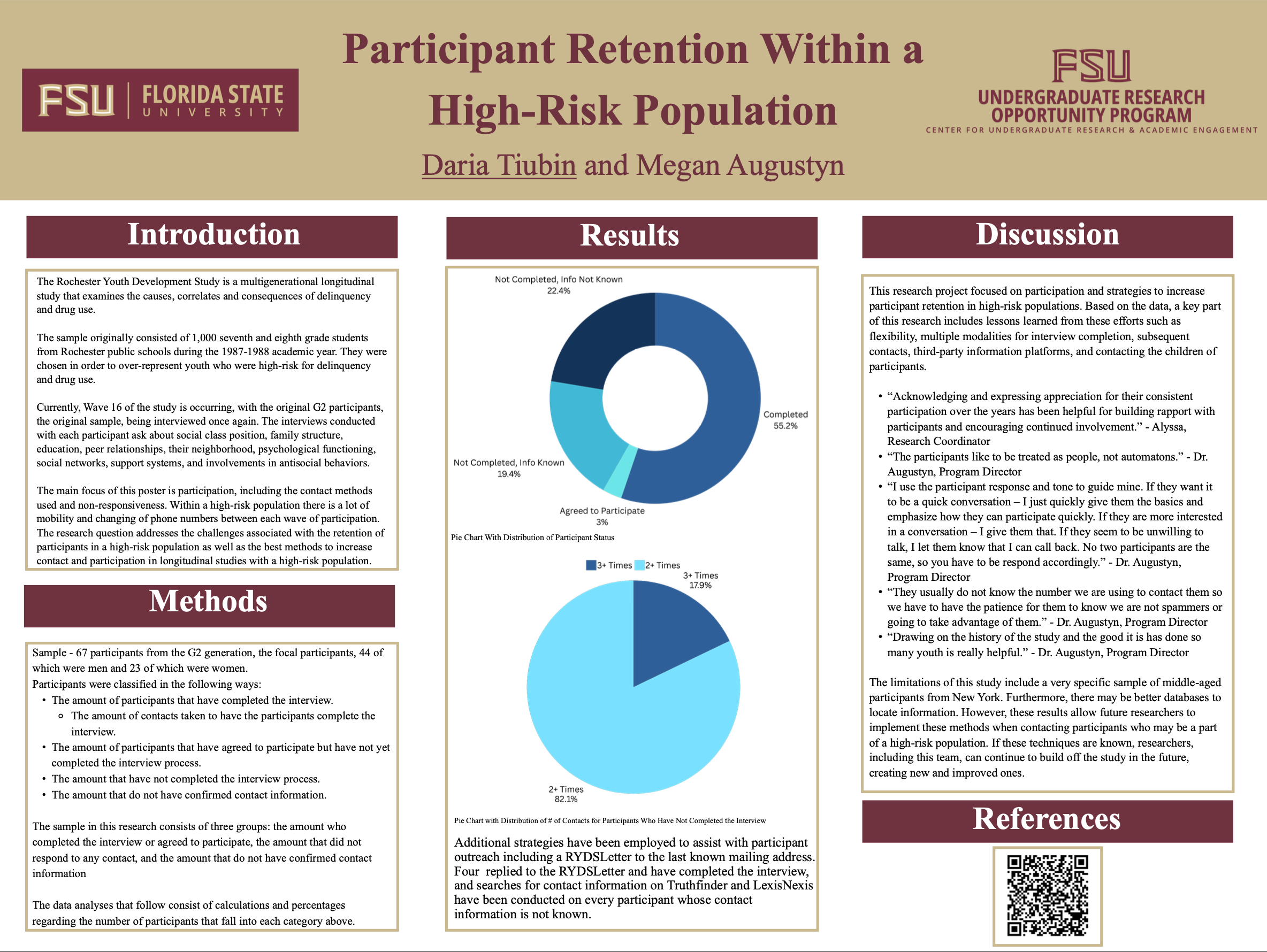Research Symposium
25th annual Undergraduate Research Symposium, April 1, 2025
Daria Tiubin Poster Session 1: 9:30 am - 10:30 am/ Poster #89

BIO
Daria Tiubin is a second-year student from Sarasota, FL, pursuing a dual degree in Psychology and Criminology with a minor in Women's Studies. At FSU, she is involved on campus as a Resident Assistant in Landis, is a FSU Service Scholar, an intern at Second Harvest, and an Honors Legal Scholar. Within research, she is interested in delinquency, criminal behavior, and life-course research. After graduation, she hopes to start law school and pursue a career in criminal defense or civil rights law.
Participant Retention Within a High-Risk Population
Authors: Daria Tiubin, Megan AugustynStudent Major: Psychology & Criminology
Mentor: Megan Augustyn
Mentor's Department: Department of Criminology Mentor's College: College of Criminology & Criminal Justice Co-Presenters:
Abstract
High-risk populations, those with a lower socioeconomic status or living in a high crime/low-income area, often change phone numbers, addresses, and email handles. Researchers conducting surveys and studies rely on these methods of contact to reach respondents for participation. Over the past ten months, a sample of approximately seventy participants have been contacted for a follow-up interview as part of the Rochester Youth Development Study. If a participant responds to the call, they are given the option to complete an interview over the phone or a survey via email. If they are unresponsive, alternative measures are taken to reach them. However, conducting research calls, phone interviews, and email surveys has been challenging due to participant attrition. When participants discontinue their involvement, data on high-risk family dynamics is lost, potentially compromising the study’s generalizability and validity. Currently, about half of the participants in this sample have been unresponsive. Although interviews are still being conducted within the larger sample, a significant portion remains unreachable. In response, strategies to enhance retention in longitudinal studies have been developed. Effective methods include dual contact attempts, reaching out to participants' children in certain cases, and using third-party platforms to obtain updated contact information. Finding an effective solution to maintain contact with high-risk populations in longitudinal studies is crucial for improving a study’s generalizability and validity.
Keywords: longitudinal, delinquency, interviews, participation, criminology


